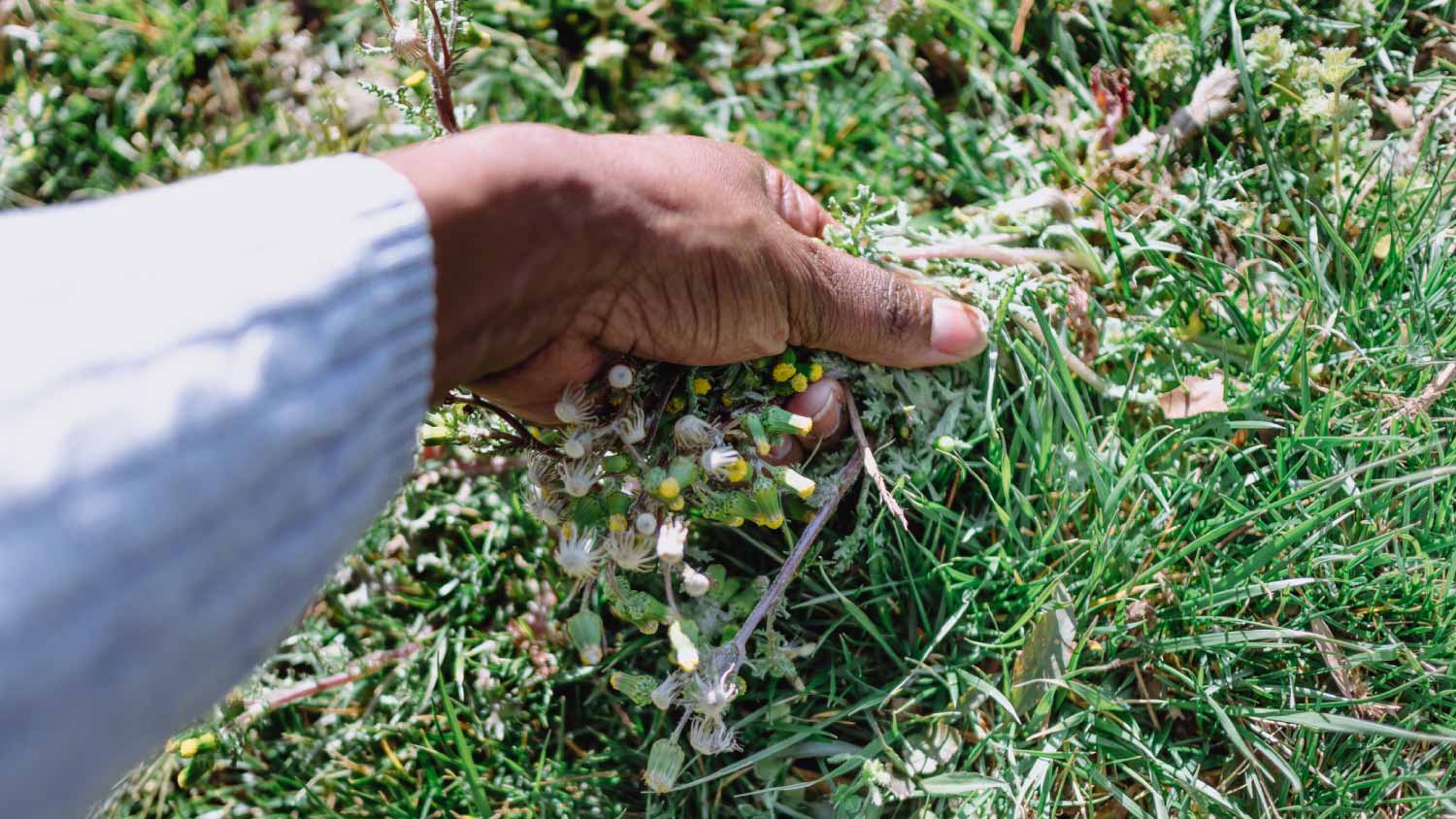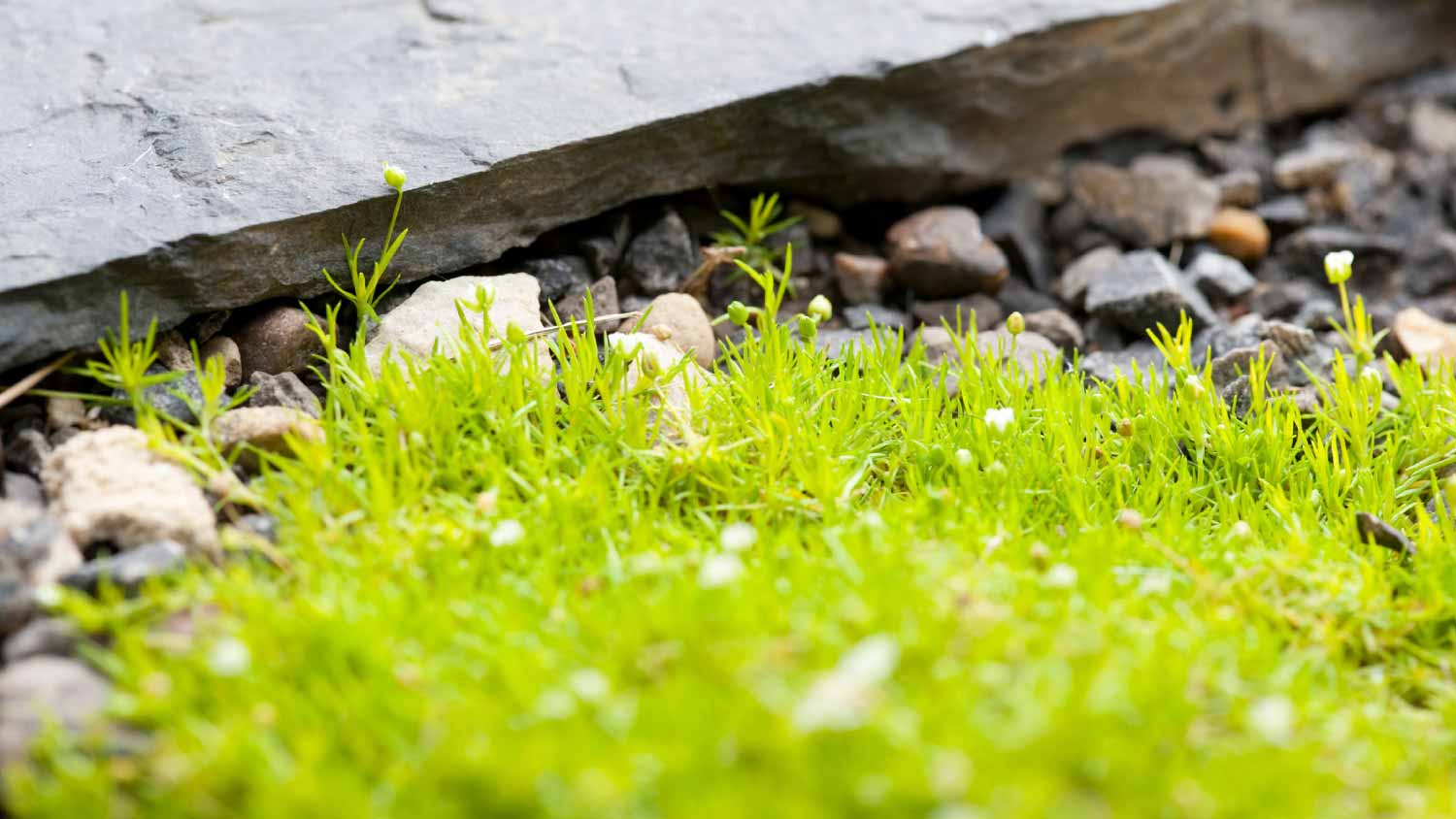Can You Overwater Grass Seed? Tips for Getting Your Irrigation Just Right
Create a moist bed for grass seeds, not a lazy river ride


Watering grass seed requires balance, as overwatering can wash away seeds, while underwatering can dry out sprouts.
Keep the soil moist when you sow new grass seed.
Watering your lawn is best done in the mornings, as it prevents the sun from evaporating the water.
Use a sprinkler system for even water distribution.
Be careful to reduce all activity on the lawn after sowing grass seed to avoid uprooting it.
If you’re looking to reinvigorate your whole lawn or just fill in some bare patches, adding new grass seed is the first step. And one of the most important parts of cultivating the new grass is ensuring it gets the water it needs to thrive. But how much water is too much? Can you overwater grass seed in your lawn? Find out why the answer is yes, and learn more about how long to water grass and when to do so to help your new grass grow as healthy as can be.
Preparing for New Grass Seed

Before sprinkling grass seed in your yard, you want to prep it. First, walk around your yard, remove any weeds you see, and dethatch the lawn. If you have a bare, clean lawn, you can move on to soil enrichment.
Preparing the soil is another key component to ensuring grass seeds thrive. You’ll want to aerate the yard first. Aerating is where you poke tiny holes throughout your yard to break up soil compaction. These holes allow better absorption of water, sunlight, and air—all elements your grass needs to grow. Learning how to aerate your lawn is easy, but if you’re not up to getting your hands dirty or you have physical limitations, you can have a lawn care company handle the work for you.
Will Compost Help My Grass Grow?
Yes, well-decomposed compost can stimulate grass growth. Along with providing nutrients your grass seed needs to thrive, compost can also improve soil drainage. When applying it, make sure to use a rake to evenly spread the compost throughout your yard. At this time, you’ll want to remove any larger rocks or other objects scattered about your lawn.
How Long Should You Water Grass Seed?
Before applying your grass seed, water your soil so that it’s moist 6 to 8 inches deep. After sowing your grass seeds, strike a balance in how often you water your lawn. To start, water your new seed for five to 10 minutes two to three times a day. Doing this ensures your soil remains moist without oversaturing your seeds.
After your grass grows (or germinates), you’ll want to change how often and how long you water it. Ideally, aim for 40 minutes every other day, then taper back to two to three times weekly. Once grown, grass usually needs at least an inch of water each week, though your climate and type of grass might require more water.
Tips to Prevent Overwatering

Can you overwater grass? Yes, and it’s easier to do than you may think, especially with new grass seed. If the new seeds don’t receive enough water, the dried-out sprouts die. Meanwhile, if your lawn is oversaturated, the grass seed won’t be able to establish roots and is more susceptible to pulling up as you walk around your yard.
With these things in mind, here are some tips to keep your lawn moist:
Use a sprinkler system: A sprinkler system promotes an even flow of water throughout your yard. The average sprinkler system cost is $2,540. That might seem steep on the surface, but they do take some of the guesswork out of lawn watering and can save you time.
Time it right: The best time to water grass is in the morning. Why? Your grass will have ample time to absorb the water before the heat of the day is overhead. If you wait to water until the middle of the day when it’s the warmest, some of the water will evaporate before soaking in, resulting in your grass not receiving adequate water.
Keep evaporation at bay: Covering your yard with mulch before applying grass seed helps prevent water from evaporating after application. Mulch works like a protective barrier or ground coating, protecting your grass seeds from the sun and wind, which can take some of the water away.
Pay attention to the weather forecast: If there’s a chance of rain, hold off on watering. Grass and new seeds are susceptible to oversaturation. With new seeds, this means that instead of taking root in the soil, they take a lazy river ride across your lawn, where they might mingle with other seeds in one area. Then, your lawn would have bare patches. The seeds might also completely float away with the water, reversing all the work you’ve done.
The best time to water grass is at dawn or early evening before the sun is fully out. This will result in less wasted water from evaporation.
Lawn Care Best Practices
Along with the watering best practices, here are a few more general tips to ensure your new grass thrives:
Choose When You Plant New Seeds Wisely
You might feel a temptation to plant new grass seeds during the warmer months if you notice bare patches or want some fresh new grass. The only problem with this is that watering grass during the warmest months is challenging, requiring more frequent watering throughout the day to keep the soil moist. Ideally, plant your grass seed in the spring months before the weather becomes hot.
Use Oscillating Sprinklers
When shopping for sprinklers and sprinkler head types, one of the better options is an oscillating sprinkler. This works best if you’re reseeding large areas where runoff is more likely to happen. The back-and-forth sprinkler motion gives the water time to soak into the grass seeds, unlike a constant jet like you would receive with a regular sprinkler. Your local lawn sprinkler installer can go over the various options that might be best suited for your yard.
Mow Dry
It can take new seeds two months to grow enough for mowing. Once the lawn is ready to mow, you might wonder if you can mow wet grass. The answer is no. You’ll want to wait until the grass dries because grass tends to clump when wet. As your mower cuts wet grass, it’ll run over the grass and the clumps (if you don’t have bagging attached), which leads to uneven cutting. Moreover, your soil is more susceptible to damage when wet, so a mower’s wheels can tear up the grass roots as you mow. Therefore, waiting until the grass dries ensures an even cut with minimal grass damage.





- 6 Ways to Kill Grass On Your Lawn
- Pros and Cons of No-Mow Grass: What to Consider
- How to Kill Grass in Flower Beds: 8 Easy Methods to Try
- What Do You Put Down First: Grass Seed Or Fertilizer?
- What Is Bermuda Grass? Everything You Need to Know for a Healthy, Green Lawn
- When the Grass Is Greener: 10 Best Grass Types for Your Lawn
- 7 Tips for Keeping Your Grass Green During a Drought
- When Grass Becomes a Weed: How to Control and Get Rid of Bermuda Grass
- Best Grass For High Traffic Lawns: 6 Types to Try
- How to Kill Orchard Grass in Your Lawn and Control It for Good










